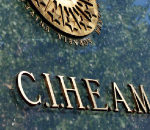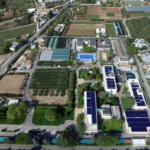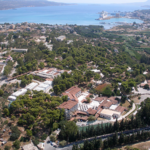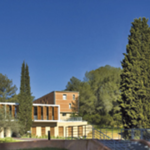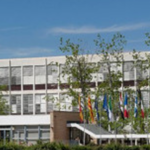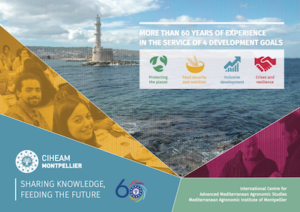“Our vision is that of a Mediterranean basin characterised by a spirit of cooperation while benefiting from balanced development, efficient and sustainable agriculture and prosperous rural territories.
The current Mediterranean backdrop encourages us to work tirelessly to ensure that this vision comes to fruition.”
Almost 60 years of experience...
The CIHEAM Montpellier is one of four institutes of the International Centre for Advanced Mediterranean Agronomic Studies (CIHEAM), an intergovernmental organisation founded in 1962.
Thanks to our training, research and development activities, and through the human and social sciences, we explain the major transformations and inform public decision-making on three essential themes:
- The sustainability and resilience of Mediterranean agro-ecosystems
- The integration of local agri-food chains into global value chains
- The governance of rural territories conceived as a concerted and reasoned development of the rural space.
We contribute to fulfilling the strategic priorities of the CIHEAM (PACMED2025) and implementing the SDG within the Mediterranean basin via a socio-economic approach; our areas of expertise and fields of action focus on the following themes:
 | Zero waste: knowledge & know-how, natural resources & energies and food. |
 | Sustainable agricultural and food systems: incorporation of local agri-food sectors into the value chains. |
 | Rural territories that are attractive places to live and work in: resilience of Mediterranean agro-ecosystems. |
 | Risk prevention and conflict resolution: governance in favour of attractive rural and coastal areas. |
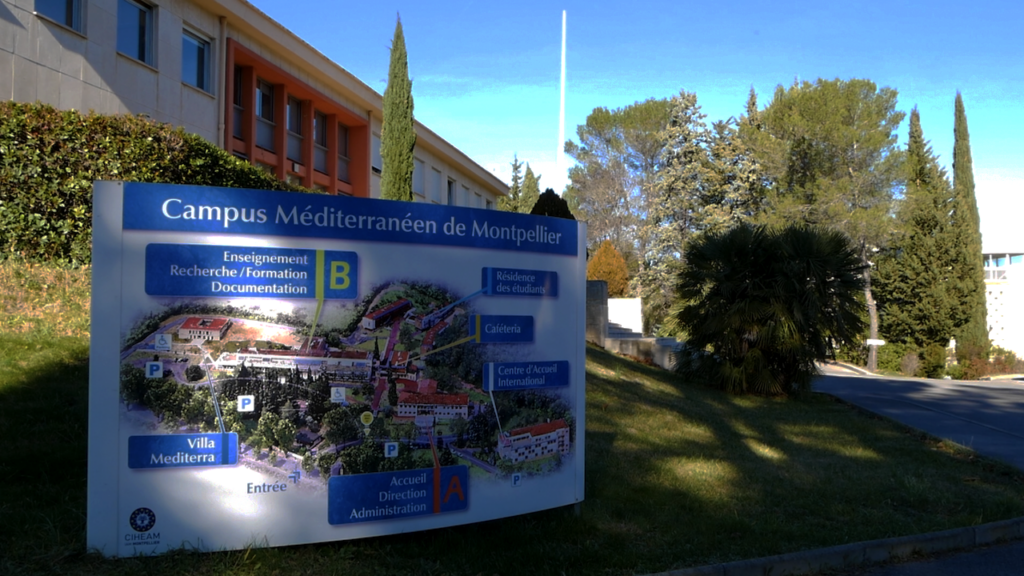
Our teaching activity is underpinned by research and cooperation activities in phase with the scientific environment of Montpellier (joint research units, Agropolis International, I-site MUSE, etc).
In this outstanding scientific environment, the CIHEAM Montpellier stands where the Mediterranean meets Europe. Systematically conducted in partnership with institutions and individuals within the Mediterranean basin, our activities have led to the development of reliable networks over many years.
Our alumni support these networks and activities long after they have been in Montpellier!
Our advantages
A wide choice of courses on our specialist themes: M2, Master of Science, supervision of doctoral students, continuing vocational education or French as a foreign language.
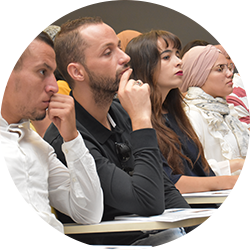 • Distance prerequisites are available to M2 students to upgrade their knowledge before the beginning of the academic year, as our students come from different backgrounds (agronomists, economists, geographers, etc.).
• Distance prerequisites are available to M2 students to upgrade their knowledge before the beginning of the academic year, as our students come from different backgrounds (agronomists, economists, geographers, etc.).
• Our network of partners provide a wide range of learning environments and research subjects.
Scientific experts specialising in Mediterranean issues who contribute to our teaching, research or expertise activities to the benefit of the Mediterranean states and their constituent regions. These activities draw on our international networks and the scientific environment in Montpellier, which is extremely rich in the fields of interest to us.
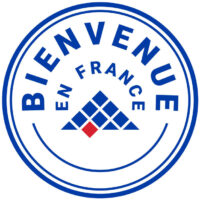 Some 95% of international students, primarily from CIHEAM member states as well as from other countries, are accommodated every year. Intercultural exchange is one of the key elements in accomplishing our missions: the quality of the student welcome is of the utmost importance to us, and the fact that we have been awarded the “Bienvenue en France” label testifies to our know-how in this field.
Some 95% of international students, primarily from CIHEAM member states as well as from other countries, are accommodated every year. Intercultural exchange is one of the key elements in accomplishing our missions: the quality of the student welcome is of the utmost importance to us, and the fact that we have been awarded the “Bienvenue en France” label testifies to our know-how in this field.
Competent and dedicated teams provide high-quality personal and scientific accompaniment in terms of both project management and learning pathways or with regard to daily campus life, which can often be complicated for foreigners.
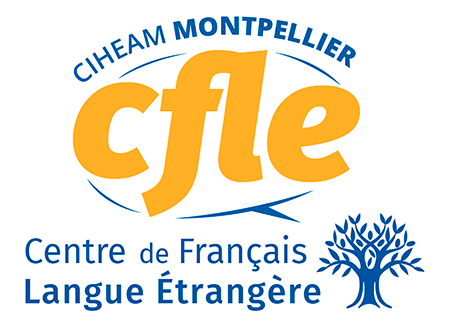 Our Centre for French as a foreign language (CFLE) facilitates the integration of our students, by enabling them to learn not only a foreign language but also cultural codes. This centre is also open to partners within the local scientific community.
Our Centre for French as a foreign language (CFLE) facilitates the integration of our students, by enabling them to learn not only a foreign language but also cultural codes. This centre is also open to partners within the local scientific community.
A Mediterranean campus managed through a sustainable development approach: built in 2012 in accordance with the HQE standards (high environmental quality) and nestling in 7 hectares of parkland, the residence can accommodate a hundred students. The campus is equipped to accommodate individuals with reduced mobility.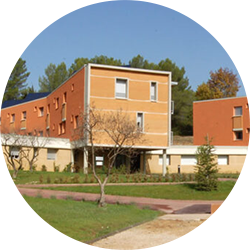

The CIHEAM Montpellier
From its early beginnings...
...to the present day
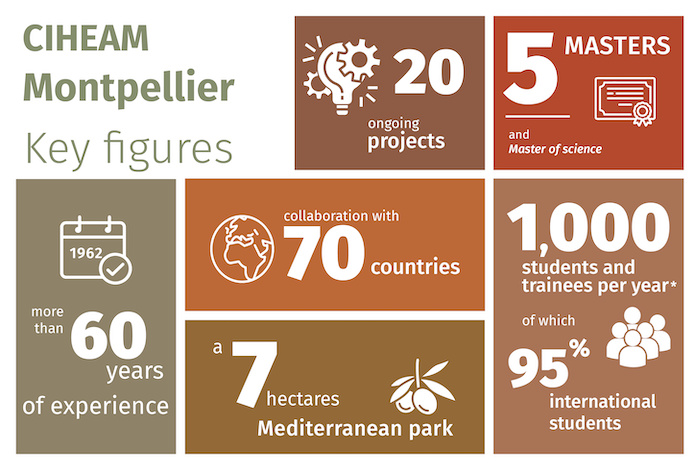


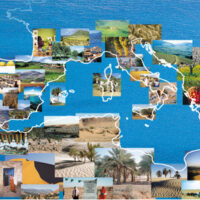 CIHEAM MontpellierOur vision is that of a Mediterranean basin characterised by a spirit of cooperation.
CIHEAM MontpellierOur vision is that of a Mediterranean basin characterised by a spirit of cooperation.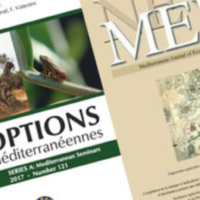 CIHEAM publicationsOur publications and communication tools aim to facilitate decision-making processes for political, economic and agricultural actors in the Mediterranean region
CIHEAM publicationsOur publications and communication tools aim to facilitate decision-making processes for political, economic and agricultural actors in the Mediterranean region News and events
News and events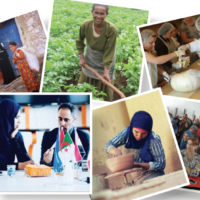 Press review (Scoop.it)
Press review (Scoop.it) Master programmesThe CIHEAM Montpellier stands for both personalised accompaniment and international openness.
Master programmesThe CIHEAM Montpellier stands for both personalised accompaniment and international openness.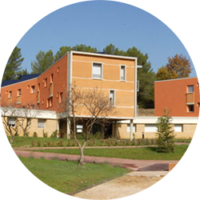 Campus & student lifeSince 1962, almost 95% of our foreign students have been granted accommodation on site.
Campus & student lifeSince 1962, almost 95% of our foreign students have been granted accommodation on site.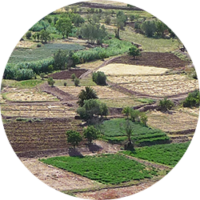 Doctoral platformShaping the scientists of tomorrow through research training… A natural commitment of the CIHEAM Montpellier
Doctoral platformShaping the scientists of tomorrow through research training… A natural commitment of the CIHEAM Montpellier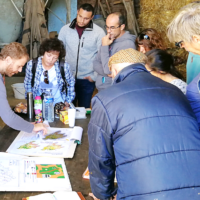 ProjectsOur research and cooperation projects are tools for inclusive development, they take into account the populations and rural and coastal territories of the Mediterranean.
ProjectsOur research and cooperation projects are tools for inclusive development, they take into account the populations and rural and coastal territories of the Mediterranean.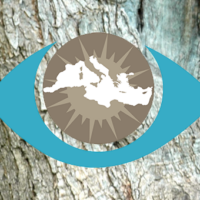 Mediterranean online catalogueA unique Documentation Center on the Mediterranean,
invested in sharing knowledge.
Mediterranean online catalogueA unique Documentation Center on the Mediterranean,
invested in sharing knowledge. Scientific productionThe scientific production of the CIHEAM Montpellier is the fruit of collaborations by our lecturer-researchers, associated experts, students and research partners.
Scientific productionThe scientific production of the CIHEAM Montpellier is the fruit of collaborations by our lecturer-researchers, associated experts, students and research partners. Becoming partnersCreating partnerships is part of the genetic make-up of the CIHEAM Montpellier... Join one of its projects or study programmes, support its actions.
Becoming partnersCreating partnerships is part of the genetic make-up of the CIHEAM Montpellier... Join one of its projects or study programmes, support its actions.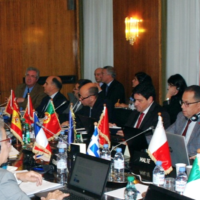 Ministerial meetingsThrough the Ministerial, CIHEAM contributes to the construction of a dialogue between the Mediterranean countries around questions relating to agriculture and the rural world.
Ministerial meetingsThrough the Ministerial, CIHEAM contributes to the construction of a dialogue between the Mediterranean countries around questions relating to agriculture and the rural world.